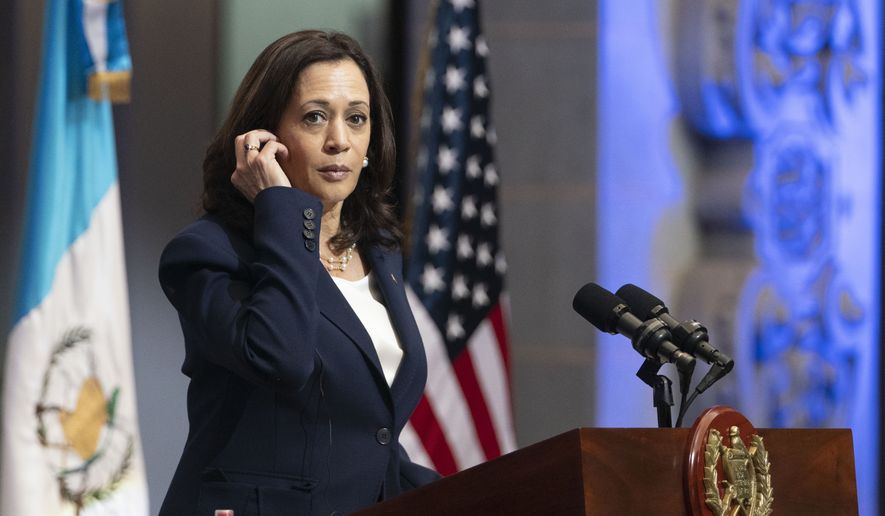Pepsi, Cargill and several other companies will make new investments in Central America, Vice President Kamala Harris announced Monday, saying it was the latest success in her effort to try to create opportunities in those communities that might keep future would-be migrants at home.
The seven new companies mark the second round of commitments Ms. Harris has touted as part of her “Call to Action” in Central America.
She said some of the earlier commitments, announced in May, are already showing results, including Microsoft, which has “catalyzed” broadband access to 1.1 million people, and development of clean energy. Nespresso has also promised to spend $150 million between now and 2025, for the first time buying its coffee from Honduras and El Salvador.
All told, Ms. Harris counts $1.2 billion in commitments made as part of her Call to Action.
The vice president’s efforts in Central America have been among the most controversial of her 11 months in office.
As the Biden border surge went into overdrive in the spring, she was tapped with devising ways to stop the large number of migrants from crossing. The migrants mainly came from El Salvador, Honduras and Guatemala, known as the Northern Triangle, which has surpassed Mexico as the leading source of illegal border crossing.
Some critics dubbed her the border czar — a title she has resoundingly rejected, insisting her billet stops south of the border.
Ms. Harris has blamed a variety of factors for the increase such as climate change, corruption and violence, though major new studies, including one sponsored by the Homeland Security Department, say the key driver is economics. One study said the average migrant from Northern Triangle countries sees a 10-fold increase in income by coming to the U.S.
That explains Ms. Harris’ focus on job opportunities, though closing enough of a 10-fold gap in incomes to keep people at home will be tricky.
And even as the vice president focuses on Central America, migration patterns are changing.
Over the last five months of fiscal year 2021, the Northern Triangle accounted for about 40% of illegal border crossers. But those from beyond that region and Mexico accounted for 28%, far higher than in recent years.
• Stephen Dinan can be reached at sdinan@washingtontimes.com.




Please read our comment policy before commenting.